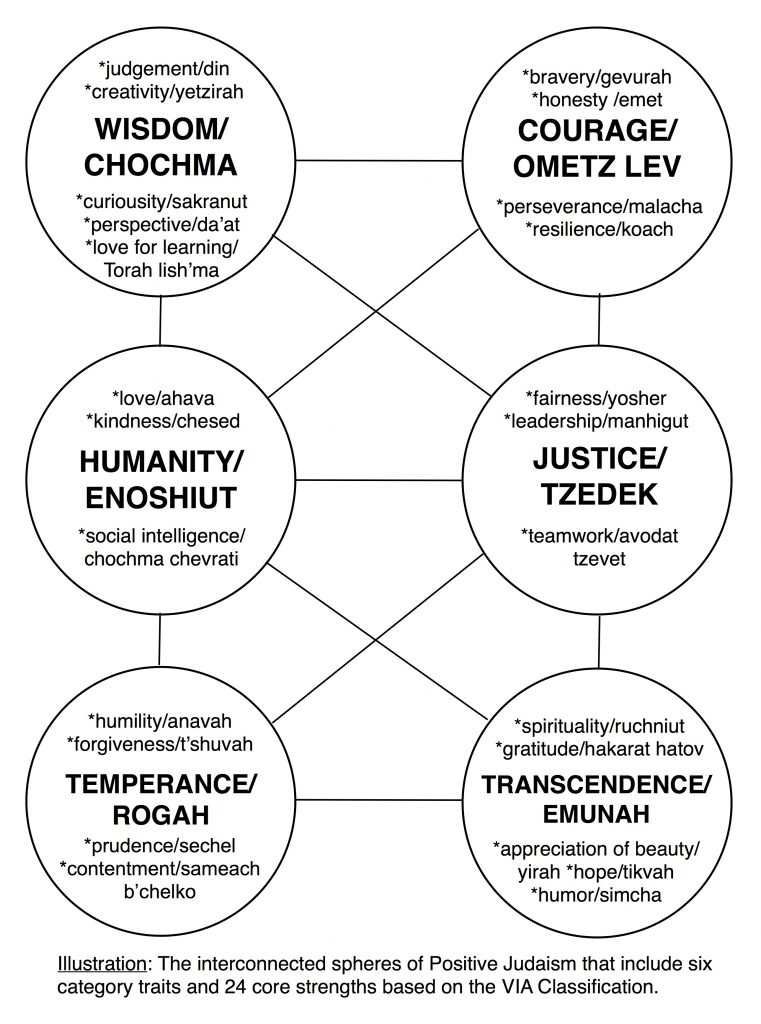We all know people who are negative and critical. We also know people who are positive and caring. I’ve wondered, how can we become more positive and less negative in our lives? How can we develop more care and less criticism? More happiness and less pain? No matter your current state of positivity, there are six pathways to wisdom that come from the research on happiness and Jewish living.
Aristotle said, “knowing yourself is the beginning of all wisdom.” The Proverbs expands on this suggesting that the highest goal is “wisdom and discipline, understanding and insight.” Let’s turn to the Five Spiritual Paths to Wisdom from a Jewish perspective.
1. Creativity (in Hebrew, yetzirah)
Wise people are continually thinking of novel ways to conceptualize and do things. They are original and have ingenuity. They use their unique mind to accomplish tasks and they are confident in the way they make decisions. Be creative in your own way, every day!
“In the beginning of God’s creation of the heavens and the earth. Now the earth was empty and darkness was on the face of the deep, and the spirit of God was hovering over the face of the water. And God said, “Let there be light,” and there was light. And God saw the light that it was good, and God separated between the light and between the darkness.”
2. Curiosity (in Hebrew, sakranut)
Wise people take interest and have a desire to explore and discover new things. They are open to new experiences and like to expand their minds to new ideas and challenge their current ways of thinking. Curious people like diversity and value having their opinions challenged.
We must help children understand why we do such things at the Passover seder. By telling them “it is because of this” they will come to understand that we celebrate Passover at that time when the matzah and maror are placed on the table. We are explaining to him what it is that makes this moment special for telling the story of the Exodus. In this way one is able to open a discussion of the uniqueness of this evening – with unique symbols that prod our interest and curiosity. In a sense, we point out the symbols and the specialness of the night so that every child will become interested and curious. (Kos Shel Eliyahu on Pesach Haggadah)
3. Judgement (In Hebrew, din)
Wise people are able to be discerning and shift their thinking and redirect their opinions in light of new information. People who have strong judgement are critical thinkers and even if they do not share other people’s opinions, they are respectful and open-minded.
“My son, if you accept my words and store up my commands within you,
turning your ear to wisdom and applying your heart to understanding—
indeed, if you call out for insight and cry aloud for understanding,
and if you look for it as for silver and search for it as for hidden treasure,
then you will understand the fear of the Lord and find the knowledge of God.” (Proverbs 2:1-5)
4. Love of Learning (In Hebrew, Torah l’shma)
Wise people have a desire to master new skills and knowledge through formal and informal education. They are driven to gain knowledge. They like to read, listen to radio, podcasts, lectures, as a pathway to expand their intellect.
“My son, do not forget my teaching, but let your mind retain my commandments; For they will bestow on you length of days, years of life and well-being.“ (Prov 3:1-2).
5. Perspective (In Hebrew, da’at)
Wise people have a broad mindset and an ability to provide thoughtful counsel to others and to themselves.
Shema Yisrael, Listen Israel with your mind open. – Seforno, Medieval commentator on Deut 6:4)
I wish you well as you expand your wisdom. To explore these 5 pathways and to learn the research and science behind these 5 pathways, visit viacharacter.org.
As always, here’s to your wisdom and wellbeing,
Rabbi Darren Levine

